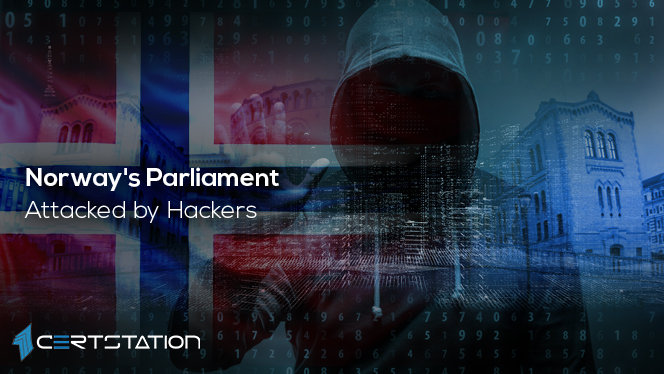
On Tuesday, Norway’s parliament came under a huge cyber-attack that allowed cybercriminals to access the email of some legislators.
It was not immediately identified who the hackers were and where they conducted the attack from.
The parliament, in a statement, wrote: “The parliament has recently been targeted in a vast cyber-attack.” It added: “There have been intrusions in the email accounts of a few MPs and employees. Our analyses show that varying quantities of data have been downloaded.”
The website of the Storting, the single chamber parliament, was working normally on Tuesday.
According to the parliament’s administrative director, Marianne Andreassen, the institution had detected “anomalies a little more than a week ago” and took steps “that were effective”.
She told reporters it was not clear who was behind the attack, but said that a police report had been filed.
In its yearly threat evaluation published in February, Norway’s domestic intelligence service PST cautioned of “computer network operations” which they said represented a “persistent and long-term threat to Norway”.
“With no borders and no warning, a malicious actor can cause serious damage to Norwegian companies and infrastructure,” PST said, adding that sensitive information could be “stolen or manipulated” and essential infrastructure “disrupted or destroyed”.
In 2018, Norway apprehended a Russian national alleged to have gathered information on the parliament’s internet network, but let him go him quite a few weeks later owing to want of evidence.
Elsewhere, the New Zealand stock exchange said it had also been attacked by hackers in the last few days.




